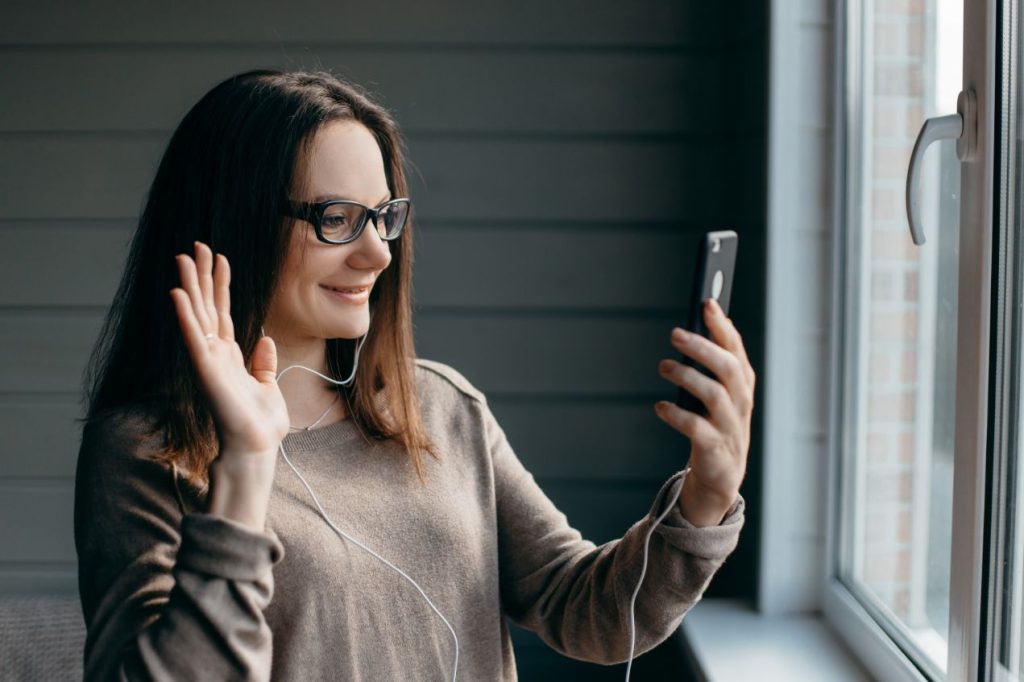Introduction
For many, accessing specialized healthcare can be a challenge. Whether it’s the distance to the nearest clinic, a busy work schedule, or mobility issues, barriers often stand in the way of getting the care you need. This is especially true in audiology. But what if you could consult with your audiologist, have your hearing aid adjusted, and receive expert advice without ever leaving your home?
Welcome to the world of tele-audiology. This innovative approach is using technology to break down barriers, making expert hearing care more accessible, convenient, and personalized for everyone, no matter where you are in South Africa.

What Exactly is Tele-Audiology?
Tele-audiology is the delivery of audiological services using telecommunications technology. In simple terms, it’s using tools like video calls, smartphone apps, and the internet to connect you with your audiologist remotely.
While it doesn’t replace all in-person appointments, it complements traditional care by offering a wide range of services from a distance, including:
- Virtual Consultations: Discussing your hearing concerns and history via a video call.
- Remote Hearing Screenings: Using validated online tools or apps to get a baseline understanding of your hearing.
- Hearing Aid Adjustments and Fine-Tuning: Allowing your audiologist to program your hearing aids remotely.
- Follow-Up Care and Counseling: Checking in on your progress and providing ongoing support.
- Troubleshooting: Quickly resolving minor issues with your devices.
How Does It Work in Practice?
The process is surprisingly straightforward and centered around modern technology you likely already use. Imagine your hearing aid manufacturer has released a new feature, or you’re struggling to hear in a specific environment like your favourite noisy coffee shop.
Instead of booking an appointment and travelling to the clinic, the tele-audiology process would look like this:
Schedule a Virtual Appointment: You book a remote session online or over the phone.
Connect via an App: At the time of your appointment, you open a dedicated app on your smartphone. This app securely connects your Bluetooth-enabled hearing aids to your audiologist’s computer.
Discuss the Issue: Through a video or phone call, you describe the problem to your audiologist. You can be in the exact environment where you’re experiencing the difficulty.
Receive Real-Time Adjustments: Your audiologist can then access your hearing aid settings remotely and make precise, real-time adjustments while you provide immediate feedback. They can fine-tune frequencies, adjust noise reduction settings, and solve the problem on the spot.
Save the New Settings: Once you’re happy with the changes, the new settings are saved directly to your hearing aids, and the session ends. What might have taken half a day is now resolved in a matter of minutes.
The Key Benefits of Embracing Tele-Audiology
This shift towards remote care offers powerful advantages, particularly for South Africans.
Unmatched Accessibility
For those living in rural areas or far from urban centres, tele-audiology closes the distance gap. It’s also a lifeline for older adults or individuals with mobility challenges who find travel difficult, ensuring they receive consistent, high-quality care.
Incredible Convenience
Say goodbye to traffic, waiting rooms, and taking time off work. Appointments can be fit seamlessly into your day. This convenience makes it easier to be proactive about your hearing health and seek help for minor issues before they become major problems.
Personalised Care
One of the biggest advantages is the ability to fine-tune hearing aids in your real-world environments. An adjustment made while you’re sitting in your own living room or trying to have a conversation in your kitchen is far more effective than one made in the artificial quiet of a soundproof clinic booth.
Immediate Support
A hearing aid that isn't working properly can be incredibly isolating. Tele-audiology allows for faster support, with many technical glitches or programming issues being resolved with a quick virtual call, restoring your connection to the world around you.
The Hybrid Model: Blending the Best of Both Worlds
It’s important to have realistic expectations. Tele-audiology is part of a comprehensive care plan, not a total replacement for in-person visits. The most effective approach is a hybrid model where different types of appointments are suited for different formats.
Best for In-Person Appointments:
Comprehensive Diagnostic Hearing Evaluation: This requires a calibrated, soundproof environment and specialized equipment for accurate results.
Initial Hearing Aid Fittings: The first fitting often involves physical adjustments, taking ear impressions for custom moulds, and verifying the fit with Real-Ear Measurement (REM) equipment.
Addressing Medical Concerns: Issues like ear pain, sudden hearing loss, or excessive wax build-up require a physical examination.
Ideal for Tele-Audiology Appointments:
Follow-up fine-tuning and adjustments.
Learning to use new features or accessories.
General counseling and communication strategy sessions.
Troubleshooting minor technical issues.
Is Tele-Audiology Right for You?
While tele-audiology is a transformative tool, some situations still require in-person care. The initial diagnosis of hearing loss, taking physical ear impressions for custom-fit hearing aids, and addressing complex medical issues are best done face-to-face.
Furthermore, a successful tele-audiology experience requires a few basics: a reliable internet connection and a compatible smartphone or computer.
However, for the vast majority of follow-up care, adjustments, and ongoing support, it is an excellent and efficient option.
The future of hearing care is here, and it’s more patient-focused than ever. By leveraging technology, audiology is becoming a service that fits into your life, not the other way around.
Frequently Asked Questions
1. How significant is the link between hearing loss and dementia? Is it a major risk factor?
The link is very significant. Major studies, including long-term research from institutions like Johns Hopkins, have identified mid-life hearing loss as one of the single largest modifiable risk factors for developing dementia later in life. Research has shown that even mild hearing loss can double the risk, while severe hearing loss can increase it by up to five times. While it’s not the only factor, addressing hearing loss is a critical and proactive step you can take to protect your long-term brain health.
2. Can using hearing aids completely prevent or reverse dementia?
While hearing aids are not a “cure” for dementia, they are a powerful intervention tool. Current research suggests that treating hearing loss, particularly with well-fitted hearing aids, can significantly slow down cognitive decline and may reduce the risk of dementia developing. By easing the cognitive load on the brain and promoting social engagement, hearing aids help preserve cognitive function. The key is early action; the sooner you address hearing loss, the more you can do to protect your brain.
3. I thought my family member was just becoming forgetful. Could it actually be their hearing?
It’s very possible, and this is a common scenario. Symptoms of untreated hearing loss can often mimic the early signs of cognitive decline. When a person struggles to follow conversations, they may respond inappropriately or seem confused and disengaged. This can be mistaken for memory problems or a lack of focus. That’s why a professional hearing evaluation is crucial if you have any concerns about a loved one’s cognitive health.
4. How does social isolation caused by hearing loss impact the brain?
Social engagement is like exercise for your brain. Conversations require you to listen, process information, access memories, and formulate responses in real-time. When hearing loss makes communication difficult, people often withdraw from these activities. This social isolation leads to less cognitive stimulation, which is a well-established risk factor for both depression and dementia. Essentially, by cutting off social connections, hearing loss deprives the brain of the vital “workout” it needs to stay sharp.
5. At what age should I start being concerned about the connection between my hearing and my brain health?
It’s never too early to protect your hearing, but the link to brain health becomes particularly critical in mid-life (ages 40-65). Research points to this period as a crucial time when addressing risk factors like hearing loss can have the greatest protective impact against late-life dementia. However, regardless of your age, if you notice any changes in your hearing, it’s essential to get it checked. Protecting your hearing is a lifelong investment in your cognitive well-being.



